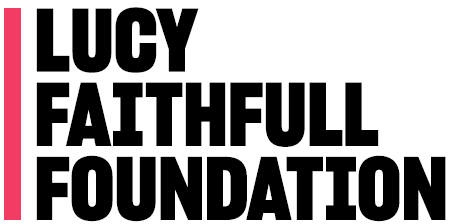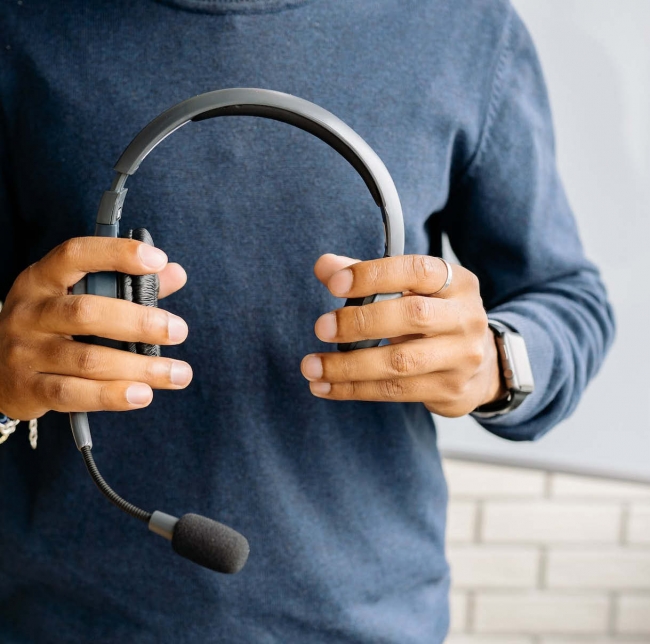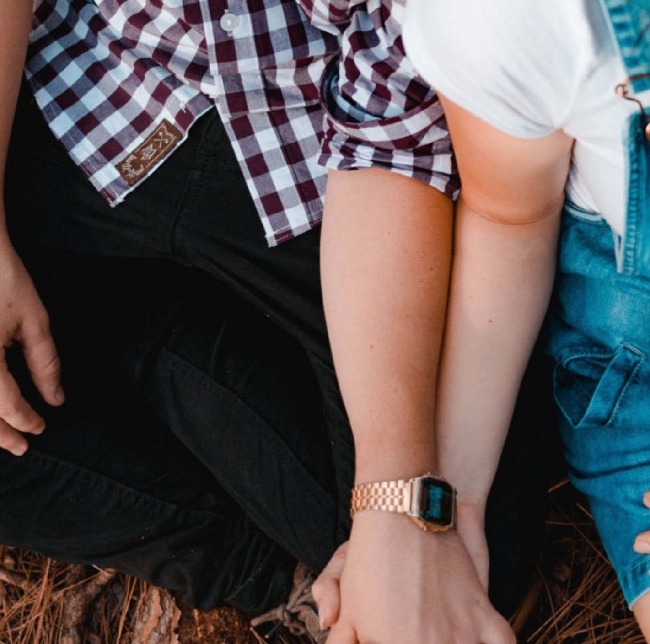CEO Deborah Denis on Woman's Hour
Today, it has been a great privilege to talk to BBC Radio 4’s Woman’s Hour as part of their series ‘The Knock’, alongside Rachel Armitage, Professor of Criminology at The University of Huddersfield.
The series details the stories of two women whose lives were changed forever after being told that a male loved one had been arrested for sexual offences against children.
Enormous courage
The two women taking part in the series have shown enormous courage by sharing their stories.
Taking these strides now will help so many others whose loved ones have been arrested for sexual offences against children – so I extend my sincere thank you to them.
Through our work, we know first-hand the devastating impact an arrest for sexual offences against children online has on families.
Our Family and Friends Forum supports many people in this position and is visited by around 40,000 people every year.
Symptoms of PTSD
Our research published earlier this year found that as many as three-quarters of family members report symptoms indicative of PTSD following a loved one’s arrest for viewing sexual images of children.
This is why, we firmly believe that statutory agencies should treat family members, just like those we heard from in the knock, as secondary victims.
We know from our research that family members of those arrested report feelings of guilt, shame, perceived discrimination and stigmatisation and, for some, these impacts are likely made worse by loneliness and isolation, with little or no access to support.
A partner can also face financial hardships, including loss of income or costs associated with recovery or building a new life which adds an additional burden and source of stress.
900 arrested per month
We also know child sexual abuse is a continually growing problem in the UK and globally. To illustrate this, figures from the National Police Chiefs’ Council suggest that the police are now dealing with more than 900 people per month who are alleged to have committed an online child sexual abuse offence.
To put this into context, in 2009/10 there were 419 arrests for sexual offences against children online in total. Now we have reached around 900 per month.
And 900 arrests means 900 devastated families who need support from organisations like ours. And this is just the tip of the iceberg.
So, what would treating families as ‘secondary victims’ look like?
Police should aim to minimise the harm to families
When police first engage with a suspect the focus is rightly on arrest and on gathering evidence. But safeguarding and ensuring the wellbeing of everyone involved should also be a priority.
Non-offending family members of people who have commited online CSA should be treated a secondary victims
To change potential perceptions of non-offending family members from complicit to victims, police, criminal justice, children’s and social services should be supported and challenged in training and professional development.
Services responding to online CSA need to be trauma-informed
A key requirement of all services that engage with victims of crime, including the family of people who commit online CSA offences, should be to understand the potentially traumatic impact of the offence on the family.
Non-offending partners and children should be signposted to support services
All families should be given a Family Pack at the time of ‘the knock’. The pack should provide a brief overview of what the investigation process entails and signpost to available support services for offending and non-offending members of the family alike.
More research should be done
Much of the existing literature on non-offending partners and their children has focused on either contact sexual offending or non-offending partners as parents of the children directly abused by their partner.
Family members should be protected from exposure in the media
Efforts should be made to work with the Independent Press Standards Organisation regarding the reporting of online CSA offenders’ family details.
We must do better for families
I am hugely grateful to BBC’s Radio 4 for shining a light on such an important issue and I hope this can open up a new conversation about the loved ones of those who arrested for sexual offences against children.
As I said on Woman’s Hour, if there was one thing I could change about how we deal with families of those arrested today it would be to break down the stigma attached to them following the knock.
This is what prevents people from coming forward for support that is so badly needed.
Our message is clear: we must do better for these families.
Sign up for news & updates
Fill in our newsletter form hereTo support our work to protect children, donate today.
Donate today





